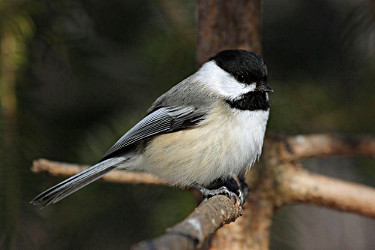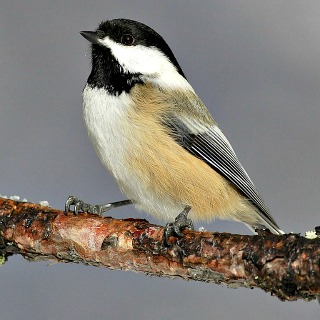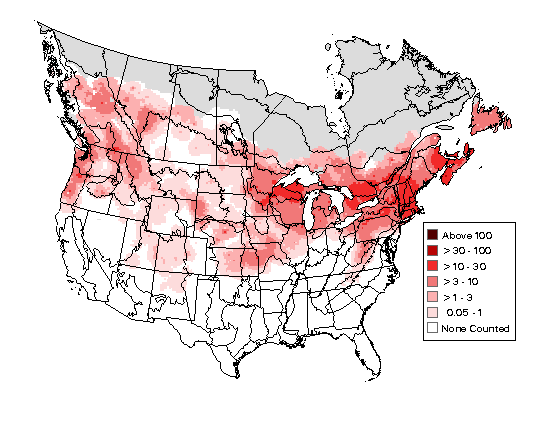Black-capped Chickadee

Black-capped Chickadee Information
Length: 4.75 - 5.75"
Habitat: Deciduous woods, coniferous woods, or mixed deciduous-coniferous woods (prefers mixed); forest edges; thickets; fields, orchards, parks, gardens, urban areas.
Diet: Insects, caterpillars, spiders; insect and spider eggs; weed seeds such as ragweed and goldenrod; wild fruits such as blueberries, blackberries, and wild cherries; pine, hemlock, and birch seeds.
Preferred Bird Feeder Food
- Black-capped chickadees favor black oil sunflower seeds (whole and shelled) and suet. They are also attracted to whole shelled peanuts, crushed peanuts, peanut butter, and dried fruit.
- These birds use a wide variety of bird feeders, from tube feeders to platform feeders and hoppers. They also enjoy small hanging feeders and window feeders.
- Offer suet in suet cages. Peanut butter can be smeared on the bark of a tree, on pine cones hung near the feeder, and on suet logs.
Additional Information
Black-capped ChickadeePhoto, description, range, diet, life history and conservation. (From National Wildlife Federation)
Black-capped Chickadee

By Mdf [CC-BY-SA-3.0], via WC
Black-capped Chickadee
Identification Tips
- Short bill
- Black crown and throat
- White face
- Pale gray upperparts
- White edges to wing coverts
- Grayish-white underparts
- Rusty flanks
- Sexes similar
- Often found in small flocks
Boreal Chickadees have more brown in their plumages than the Black-capped.
(Credit: U. S. Geological Survey)
Black-capped Chickadee
Breeding Bird Survey Map,
2011-2015

(Image credit: USGS)
Range in New England
The Black-capped Chickadee is a year-round resident of New England.
Black-capped Chickadee
Range Maps from Cornell
Black-capped Chickadee year-round range
Includes separate map of sightings.
Black-capped Chickadee
Christmas Bird Count Map
Historical CBC Map from USGS